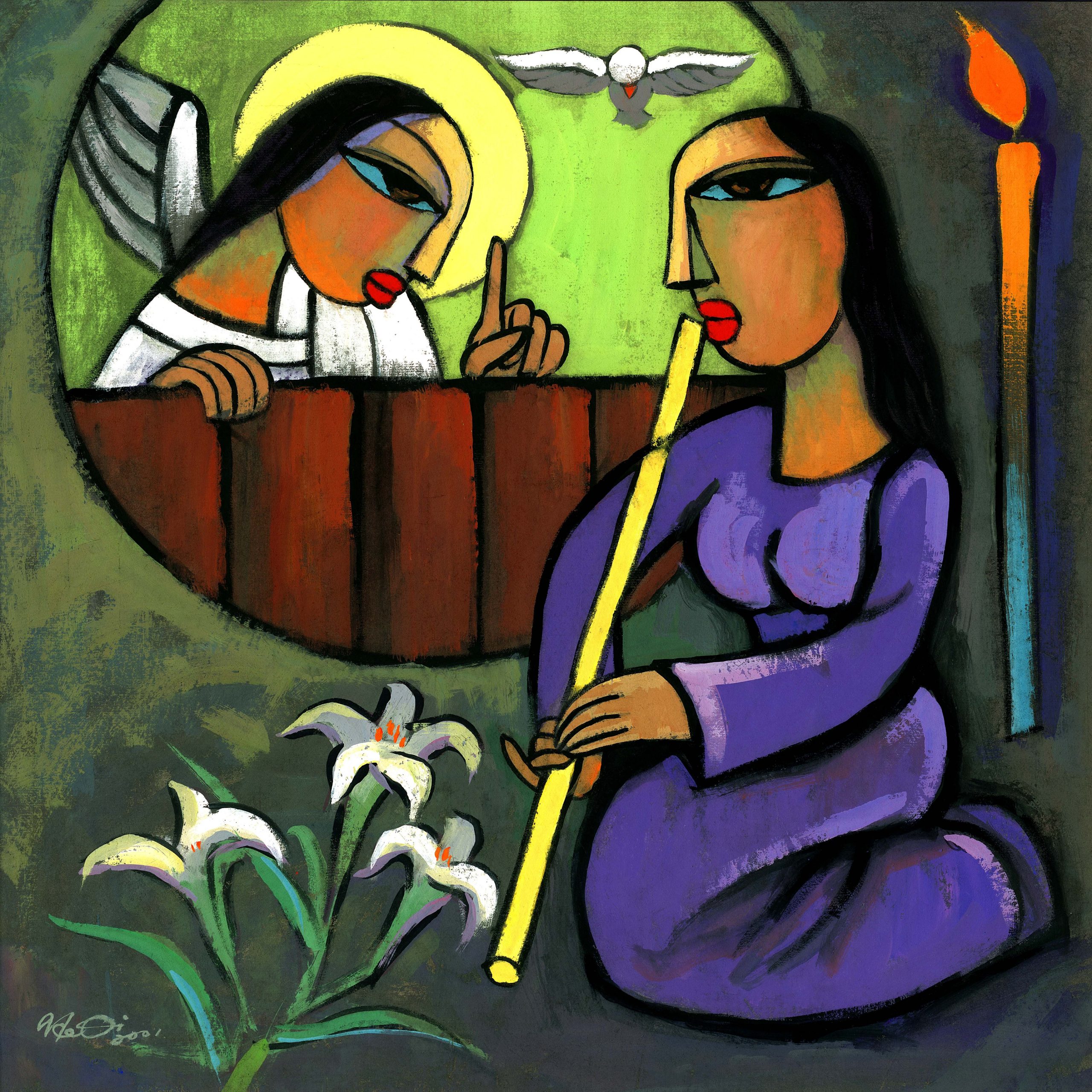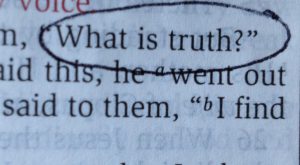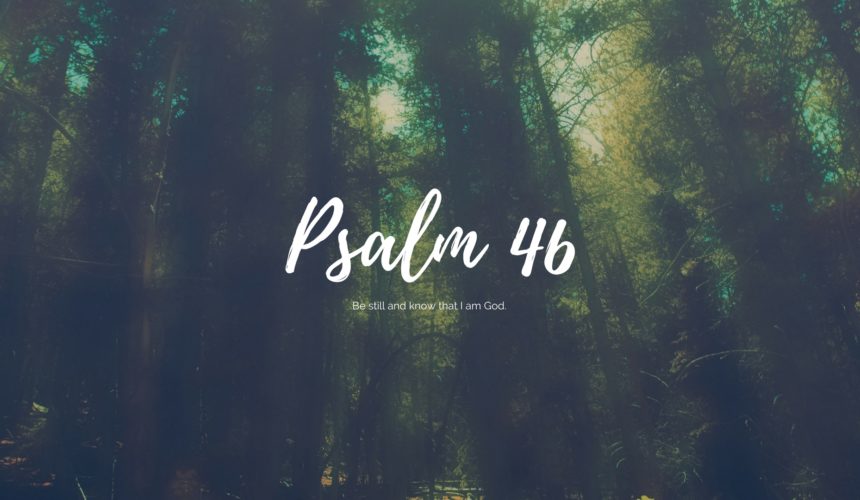1.19.20, Rooke Chapel Congregation
Galatians 5: 1, 13-25
Welcome back, friends,
to our humble Ecumenical Christian Worship service.
The angels’ songs have quieted. And the wise travelers from the east have returned home by another road.
And we are here again in the midst of holy, ordinary time,
to sing, pray, worship God, and love one another.
We will ponder, this semester,
“the fruit of the spirit.”
Laid out in Galatians Chapter 5,
and we will encourage our seniors,
to come share the pulpit,
and share with us how
“love, joy, peace, patience, kindness, generosity, faithfulness, 23gentleness, and self-control”
shape their lives.
Or how they might like them to,
This is Paul’s reminder,
that life is Christ can look different,
that things do not have to be the way they have always been.
not because we’re bound to a different set of rules,
but because we are free,
to grow in real and deep love.
The only thing that matters,
he says in verse 6,
is faith working through love.
Our seniors – those who have signed up to speak, and those who haven’t! –
we’ll encourage to take one of these fruits,
or one of the many more we could conjure,
justice, humility, perseverance, etc.
Paul’s list is not meant to be exclusive,
simply instructive.
to take those fruits and run
with whatever they might inspire or evoke in their lives.
But today, I thought,
we’d examine the fruit,
in its context,
We’ve all likely encountered this snippet of scripture, disembodied,
as church banners,
or wall hangings,
“fruit of the month” calendars
or personal prayer guides.
Warm, inviting, positive.
But it’s wedged,
actually amidst some passionate and fascinating discourse.
Those who would suggest that scripture,
or theology is boring,
would do well to read Paul’s letter to the Galatians.
In which he calls his readers fools,
his detractors, dogs,
and suggests that those who advocate the necessity of circumcision,
might consider castration instead. (actually, though.)
But, we’re getting ahead of ourselves.
Tag: Rooke Chapel
How can this be?
I sat down to write,
over the past couple of weeks.
In short, disconnected snippets.
I try not to talk about busyness,
because it’s basic, and boring,
and it’s a cultural disease.
But I was stretched the last last few days and weeks,
so my writing process wasn’t as cohesive as I like.
And I sat down on Monday,
and realized I had outlined,
drawing from this most famous of advent texts –
the annunciation to Mary –
point by point,
paragraph by paragraph,
exactly the same sermon,
I offered at Easter here,
some 7 months ago:
Again the angel comes,
saying “Don’t be afraid.”
Because that’s what angels always say.
again we have a model of discipleship,
in a female protagonist named Mary,
because – let’s be honest –
the women were the best disciples,
What is Truth
John 18: 33-38
I thought it’d be fun to start today
with a little bible quiz, whaddaya think?
Pencils out, books away.
Just shout the answer when you know it
From which book of the bible do the following passages come:
1. And the Word became flesh and lived among us, and we have seen his glory, the glory as of a father’s only son, full of grace and truth.
2. I am the way and the truth and the life. No one comes to the Father except through me.
3. And you will know the truth, and the truth will make you free.
(John 1, 14, 8 are the answers)
It’s fair to say, I think,
that John’s gospel is obsessed with the concept of truth.
It comes up dozens of times from beginning to end,
far more than any other text,
and all the other gospels combined.
John is, in essence, our first theologian.
He is not so much attempting to tell an accurate story,
as he is trying to paint us a picture,
of what it might mean,
that the Word became flesh and dwelt among us.
That eternity entered time and space.
That Wisdom became enfleshed and entombed.
That God could become human.
And the places he lands,
the pictures he paints, above all:
are grace and truth.
But when the question is asked directly,
by Pilate to Jesus:
What is truth?
There is only silence.
My God, My God, Why Have You Forsaken Me?
PSALM 22, Sunday 10/27/19
Have you ever been to an HR training?
Or a leadership development session?
They tell you.
if you are seeking to give someone “Constructive Feedback”
which is HR speak for critique,
they say you’re supposed to make a “compliment sandwich.”
Like, “Eric, three things:
1. great work on the year-end report last week.
2. Your verbal abuse of your deskmates is proving a distraction.
3. I’m loving the office birthday parties you plan.
There are many ways to interpret Psalm 22.
Which seemingly takes a dramatic turn
around verse 25:
Individual and then communal
past and then present.
present and then future.
But I like to think of it as a compliment sandwich for God:
God:
Still?
Psalm 46
I have long wanted to take up today’s question,
which comes in many forms,
but I believe I heard posed first thusly by our very own,
Professor Peter Jansson.
“when were you last still?”
Stillness feels to me an urgent concern,
in a world in which we’re constantly connected,
constantly comparing ourselves to another.
in a community in which there’s literally always something we ought to be doing:
an assignment, an email, a paper, a proposal.
in a world that values us for our output and production,
in the midst of a newscycle,
in which there’s always somethings that commands our attention,
our anger, our grief, and action.
Stillness is a bold and countercultural thing.
And hard to achieve.
And my answer to this question,
when was I last still?,
tends to be when I am set apart.
What Should I Do Then?
A Sermon for our Gospel Choir Sunday,
Rooke Chapel Congregation, 10/6/19
Our semester’s theme,
as many of you know by now,
is big questions.
And it’s likely, upon reading our text today from
1 Corinthians,
that you had a few questions of your own,
including, perhaps,
“What is Paul prattling on about?”
And, perhaps also,
“Why would Kurt choose this text?”
And finally, I imagine,
“Can’t we get back to the music?”
To the last of these questions I say, “Yes, very shortly.”
But I do wish to address the first two ever-so-briefly first,
if you’ll allow me.
The Corinthian Church –
which Paul loved, and also probably hated,
had a problem.
Actually, they had a lot of problems.
What is Family?
Luke 15: 1- 32, Sunday 9/29/19, Rooke Chapel Congregation
Family is a big word.
A sticky word.
For many of us, a given.
A rock.
Perhaps for you,
the word brings up memories of loud dinners around shared tables,
or quiet moments, vacations, sporting events,
love and connection and joy.
Perhaps for you,
the concept is more fraught,
strained and complicated and hard.
Perhaps painful,
or full of longing,
or regret.
For the students among us,
there are, I’m sure, manifold changes in your relationships
to parents and siblings.
New experiences of mature connection,
new possibilities,
new difficulties,
and, of course, for many during the college years,
we experience grief first-hand for the first time,
when we lose a close friend, professor, grandparent, or parent.
This, too, is family.
And it turns out,
our scripture’s story about family,
is more nuanced than we might care to think.
If God is for us, who is against us?
Romans 8: 26-39
9/8/19, Rooke Chapel, Bucknell University
At first blush,
the answer to today’s question might seem obvious:
If god is for us, who is against us?
No one.
or nothing of consequence anyway.
If the source and summit of the universe,
the fount of love and understanding is for us –
and I believe deeply that God is for us –
What could possibly be against us?
Of course there are those who see resistance
as evidence that we are being truly faithful in a fallen world.
but more prevalent, in my experience is a certain kind of belief that says
everything will be alright in the end.
We’re just passin’ through this life anyway.
God is for us,
and nothing else matters.
But,
suffering exists,
and evil is real,
and bad things happen to good people.
These seem self-evidently true.
Not so many years ago,
I might have needed to defend those statements in certain audiences,
but I rarely do these days.
And the more we try to deny suffering and sin and evil, I think,
the worse it gets for us.
Another week, we’ll take up the problem of evil,
the question, “why do we suffer?”
for which I most assuredly do not have an easy answer.
But for me,
the question, “If god is for us?”
leads in a straight line to the question,
What gives us hope?
What are we here for?
Rooke Chapel, Bucknell University
Sunday, September 1, 2019
1 Peter 4: 8-11
We gather each week to sing, pray, and build a community,
which attempts to respond to the immense gifts we’ve been given.
We gather each month,
to share bread and wine,
and remember the great feast to which we’ve all been invited.
And we gather this week,
having lost a great light in our community.
Carmen Gillespie – professor of English and founding director of the Griot institute,
was a scholar, teacher, poet, and visionary of the highest order.
And she will be missed desperately.
We hold Carmen’s daughters in the light,
and honor the grief that passes throughout our community when such a great tree falls,
we gather knowing that life is fragile,
and hoping that love is not.
And knowing it can turn to grief when mixed with loss.
And in the meantime, let’s to our work, of loving one another the best we can.
Welcome
As we mentioned last week,
we’re going to try a theme, this semester.
Big questions.
Because, I argue,
it is in sitting with the big questions of our scripture,
our faith, and our lives,
that we (or at least I)
experience God most fully.
Our scriptures are rich with narrative and poetry and questions,
and offer precious few simple, easy answers –
which is both wonderful and frustrating.
But this semester,
we will repose together in the questions.
And as always, I want to hear about your questions:
Both big and small.
Our question today:
“what are we here for?
is the question of purpose,
of calling.
Of vocation.
An old, and unfashionable, and lovely word,
which is drawn from the Latin vocare, voce,
meaning call and voice.
Which always made me wonder,
If God wouldn’t tell me,
over the divine loudspeaker,
what I was meant to be doing.
Who Is My Neighbor?
Rooke Chapel Congregation, Sunday August 25, 2019.
I have chosen for our theme, this semester,
“Big Questions.”
because it is in the asking of life’s biggest questions,
living in the biggest mysteries,
that I experience God most fully.
Our scripture is full of big questions,
And I hope you have some too,
And I want to hear about them.
Though you should know from the outset:
I don’t have a bunch of easy, big answers for you,
it’s I think good to be suspicious of anyone who does.
So we’ll gather this morning and this semester to sit with the questions,
and sing and pray,
and maybe from time to time, get a glimmer of an answer.
And I hope you find this place to be a home for you,
but either way, I want to get to know you,
and if we can help you connect to another community,
that’s what I’m here for too.
You may have noticed,
that two big questions were posed to Jesus in today’s text:
What must I do to inherit eternal life,
and who is my neighbor?
And he responds,
with two questions of his own, a story,
and an injunction: Go and do likewise.
Classic, right?
Couldn’t he have just told us exactly what to do?
But that’s not Jesus’ way.
And I hope it’s the asking of big questions,
that brings you to a place like Bucknell,
Wondering big wonderings is,
in essence,
our job while we are here.
And questions matter, I think,
as much as answers, in our life of faith.
It is, of course, possible to avoid big questions.
Either with our attention jumping,
like Doug the dog from the movie Up,
from one issue to the next: “Forest Fires!”



